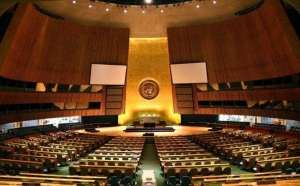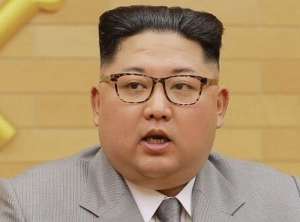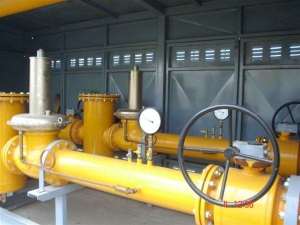Reporter: Over time, the PSD has lost the presidential elections with three candidates (Adrian Năstase, Mircea Geoană, Victor Ponta). Could we be talking about a lesson which the social-democrats have not yet learned?
Dan Sultănescu: Making generalizations is a mistake, even though it is an easy thing to do. The only generalization which I accept is that Romanians don't want to hand over complete control to one side (in this particular case, to the most powerful political side). They know that when they have done this (in 1996 and 2009, for example) the results have eventually been bad. Even though the public discourse is always anti-cohabitation, Romanians seem to prefer cohabitation, as a balance mechanism.
Reporter: What is the explanation for the massive increase in voter turnout that we have witnessed in the second round of the presidential elections (from 52.31% to 62.04%)?
Dan Sultănescu: There are several factors, one of which was mentioned earlier, but there are some nuances in that regard. The voter turnout was higher in the second round in 2009 as well, and this time the difference was just 3%. We have learned since then that we shouldn't be drawing up theories on the spot.
Reporter: What mistakes did Victor Ponta make?
Dan Sultănescu: I think that this campaign has revealed a candidate, Victor Ponta, who had a lot of emphasis on the positive side in his message and action. he did not resort to personal attacks and insulting his candidate, and he focused on showing what he did as a prime-minister in these two years and what he wanted to do in the future.
Unlike his campaign of 2012, which was far more focused on the anti-Băsescu discourse, this one was far different. And the fact that over 5 million Romanians voted a predominantly positive discourse is remarkable.
Reporter: The executive president of the PSD, Liviu Dragnea, has coordinated three electoral campaigns in which the PSD was defeated (the presidential campaign of Mircea Geoană - 2009; the campaign for the referendum intended to dismiss Traian Băsescu; the recent presidential campaign of Victor Ponta). How would you explain these repeated failures? Are there any sanctions required?
Dan Sultănescu: Liviu Dragnea is a very good coordinator of campaigns, as evidenced by the four significant electoral campaigns o f the last few years (the 2014 elections for the European parliament, which were clearly won, the parliamentary elections of 2012 which were won, the referendum for the dismissal of Traian Băsescu - for which he raised 7.4 million votes, as well as the local elections of 2012, which the PSD won with a landslide).
If you look at exit-poll data, you will find that the number of voters directly mobilized by the PSD was very large. Far larger than the number of voters mobilized strictly by the Christian Liberal Alliance (ACL). The difference did not come from a better mobilization of the opponent's party, but rather, from the fact that the mobilization of the ACL was supplemented by a rallying of the undecided voters, the ones who did not vote in the first round.
Reporter: What are the factors that have allowed the ACL candidate, Klaus Iohannis, to raise, in the second round of the presidential elections, a score that was about 25% higher than in the first round?
Dan Sultănescu: the exceptional mobilization of the public, that didn't want power to be concentrated in the hands of a single side. The young, the intellectuals, the urban electorate, these people saw in this campaign the chance of balancing the power ratio in post-Traian Băsescu Romania.
Reporter: What is your assessment of the activity of American consultant Mitch Steward, in this electoral campaign, as, in 2009 as well PSD candidate Mircea Geoană also received electoral consulting from an American company?
Dan Sultănescu: Mitch Stewart is a flawless professional, and his contribution to this campaign is remarkable.
Reporter: One week prior to the second round of the presidential elections, BURSA published an article in which certain significant members of the PSD expressed their discontent on the activity of the leaders of the PSD and of Victor Ponta. Moreover, Alin Teodorescu, sociologist and close to the PSD, said that Victor Ponta would lose the elections. What is your take on their statements?
Dan Sultănescu: I do not comment on political statements, I do not have the position that would allow me to do so.
Reporter: Is there a possibility of the PSD imploding or the government resigning?
Dan Sultănescu: The PSD will continue to govern, as long as it has the support of the Parliament. The governing coalition currently seems robust enough for that. The PSD also has the wisdom of learning from this result and to continue its modernization process, so it can continue to be the most important party in the country.
Reporter: Can we expect a suspension of the future president, Klaus Iohannis?
Dan Sultănescu: Suspending the president can only occur in the event of a serious violation of the Constitution, not under any circumstances. The constitution is very clear in that regard.
Reporter: If the elected president, Klaus Iohannis, is declared incompatible, what will be the steps to follow?
Dan Sultănescu: I can not comment on decisions of the judicial systems that I don't know about. Personally, I wish there was some political stability in Romania, after then years of political fighting and convulsions.
Reporter: Thank you!


















































